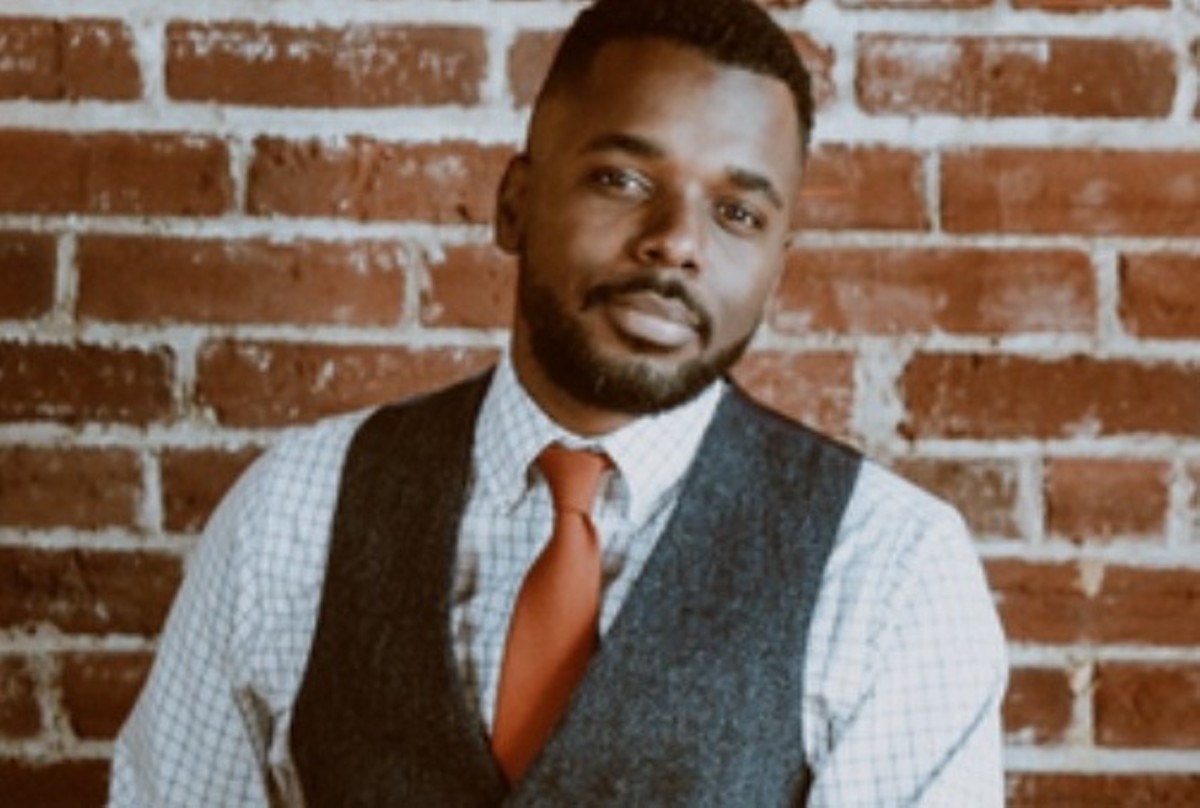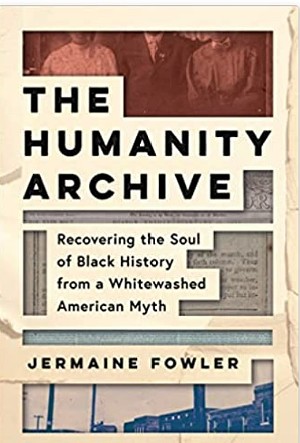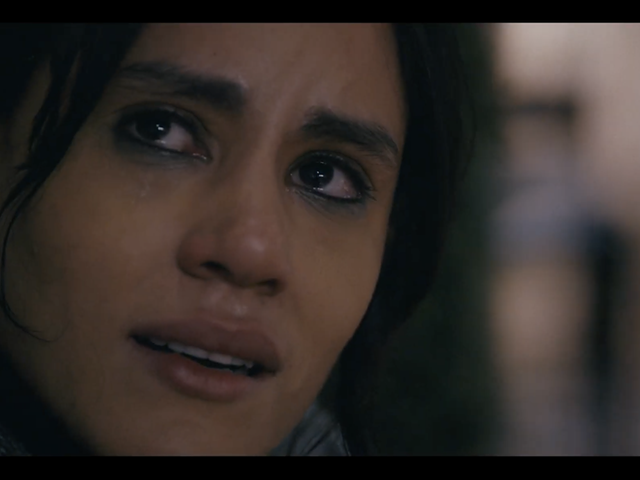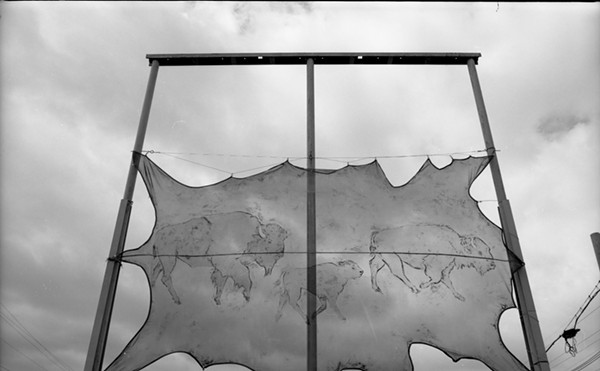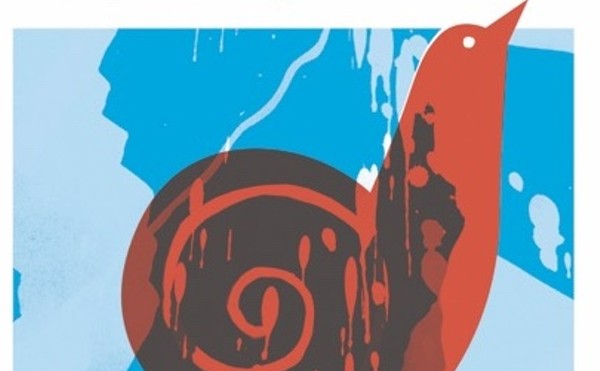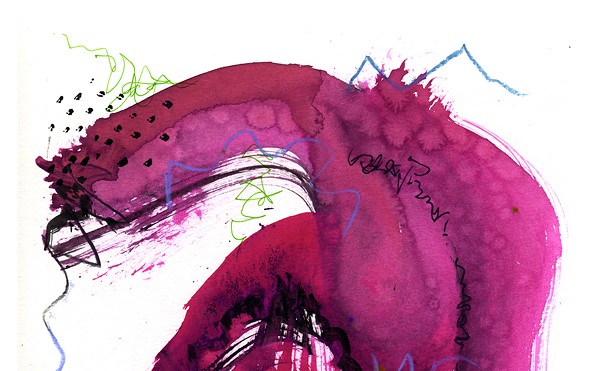Jermaine Fowler’s work speaks of a remarkable focus for hunting down verified sources and plumbing insights, not to mention a bone-deep determination to share his findings while maintaining objectivity. That Louisville should produce a Black historian of these talents at this pivotal moment is very opportune. It offers a reinforcement of optimism for those who see how disinformation thrives in many corners—even ones you’d think had become brightly lit. But then, anyone with the notion that history had “become post-racial” save for some slipping back by Texas/Tennessee/Florida school boards…well, they need to pull up a copy of Fowler’s new book “The Humanity Archive: Recovering the Soul of Black History from a Whitewashed American Myth” (RowHouse Publishing).
This volume is highly organized and scrupulously researched (40 pages of citations) but with a ready, generous flow of illustrative vignettes. It’s a complement/compilation/ distillation of many—though far from all—episodes of the podcast that shares the book’s title (but not the subtitle, and the podcast now has reached beyond three-dozen episodes with an expanding range including suffrage, Japanese-American internment, and more).
Fowler is far from the only contemporary author wanting to pull back the moldy curtains that served only the privileged. But the author finds a universality that seems natural whether interpreting, say, intentions or inactions or injustice; or in contemplating what must be reached in acknowledgements—and how. That seems a singular accomplishment considering how his thirst for knowledge could have been thwarted with his initial finding that “Black history was just a cursory scribble” when he knew there was so much more of note that might yet be verified or recovered.
Whether in realization of the threadbare documentation of horrors of the Middle Passage, or when the slave revolution in Haiti is given short shrift for its seismic importance to its time-period, this author delivers more information as well as conveying why a public—in its entirety--needs to be brought into ready grasp of full awareness of such matters. And the thin and singular swimlane of Black history as dolloped out so routinely in current education is intellectually and culturally lacking in nourishment when compared with the rich seeds of thought that Fowler plants by, for example, contrasting the identity-philosophies of Frederick Douglass (assimilationist) and nationalist Martin Delany.
Fowler wants his words online or on the page to “tell the stories of the historically unheard.” LEO recently had the opportunity to exchange Q&A email with the author in anticipation of his upcoming appearance at Louisville Free Public Library.
LEO: What do you see as the relationship in structure between the series of podcasts and the arc/sections/chapters of the book?
Jermaine Fowler: The relationship between the podcasts and the book is like as a delicate dance between form and content. Each offers a unique set of experiences for the audience. The podcasts provide an intimate and immersive experience, allowing for an in-depth examination of individual topics. The book gives a broader overview and context for these themes, connecting the dots between them in a comprehensive way. And the unifying principle of everything I do is humanity—I'm always searching for the common threads that connect us all.
Has there been criticism or pushback that you'd like to comment on? It seems that pulling-back-the-curtain-on-history has become targeted for vitriol of late—particularly when brought into a forum where public funding is involved.
Yes. I get criticism and pushback. And, of course, we see the restricting, reducing, and restraining in the teaching of Black history every year. I try to remember that the act of uncovering and reexamining Black history has always come under attack from those who fear the exposure of uncomfortable truths. But it is precisely because of this that this work is so crucial. Only through an honest appraisal of our collective past can we hope to move forward in a positive direction.
Your research skills are phenomenal. The value of libraries and online reference sites comes through constantly. Whether or not there are actions or social pressures against textbooks or popular histories or online aggregators, are you concerned that the facts themselves as found in institutional (formal or informal), journalistic, legal, etc., sources are under threat of erasure?
Thanks. I chase down facts and sources like detectives chase down leads—going to any lengths to get the full picture of what took place.
I do agree that the facts are indeed under threat of erasure, and that's a cause for deep concern. The very idea of objective truth is being called into question, and this undermines the foundations of our understanding of the world. In times of uncertainty and turmoil, it is more important than ever to turn to libraries and online reference sites as trusted sources of information. The manner in which you summon hopefulness, again and again, in "The Humanity Archive"—is it sometimes a tough slog to put into specific words?
Summoning hopefulness can be difficult. It requires us to confront the bleak realities of our world and yet still find a reason to believe that a better future is possible. I try to remember that hope is what guides us, what comforts us, what gives us strength. I want to share that. So I put it into my writing and podcasts to give hope a form, a substance, and a life beyond my own. I'm trying to inspire someone.
Of course, when I dig through the rubble of history, I find pain, wounds, wars, scars, and the human capacity for injustice. Then I find love, courage, hope, inspiration, and the human possibility for freedom. It's important to balance hope and despair. It's a struggle that I believe is worth undertaking, for the alternative is to surrender to the worst of humanity and overlook the best.
[Author-Podcaster Fowler will appear at the Main Library, 301 York St., at 7 p.m. Tuesday, Feb. 28. The program is free, but registration is requested via the Events page at www.lfpl.org]

